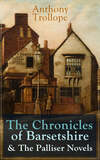Loe raamatut: «An Angel For Christmas»

An Angel for Christmas
Heather Graham

To Eric Curtis Certainly one of the world’s finest photographers
Prologue
Gabe Lange’s quarry was right in front of him.
The chase had begun in vehicles, his a police cruiser. The perp had quickly taken the lead in a stolen Maserati. Still, Gabe had discovered that the police car was well equipped to handle such a race, and he’d been right behind him all the way. In fact, while the con had eventually crashed into a snowbank, he’d managed to swerve to a stop, without even spinning in the snow and ice as he might have done.
Luke had surely faced some injury in the crash; sore muscles, if nothing else. Gabe had come out unscathed. But Luke appeared to be good at disappearing, even amidst a crash, and for a moment—when Gabe had followed him up the first steep hill that led to the road up the mountain—he’d lost him.
He could not lose him; it was Christmas Eve. He couldn’t let Luke loose on some unsuspecting family about to settle down to a Christmas Eve dinner. He could already picture the kind of home where Luke might try to find entry; a couple placing the last of the presents under the tree, perhaps. There might be a crèche set up on a coffee table, a tree with brilliant lights facing the parlor or living room with a multipaned window allowing the lights to shine upon the snow. Little ones would be put to bed; the father might be doing the last work, scratching his head as he tried to follow the “simple” instructions for finishing a bike or a video system that would be there, big and beautiful, beneath the tree. Here, especially here, in the mountains of Virginia, people had a habit of being welcoming. The houses and old cabins were few and far between, and the neighbors, even those who only came for the summer and holidays, learned to be welcoming and giving. Usually, of course.
Maybe Luke would happen upon the one family who was more than wary of strangers, and ready with a shotgun.
But Gabe hadn’t lost Luke; when he came around a copse of trees, he saw him again, limping, but continuing upward once again. The roads here were poorly plowed, but even with snowdrifts swirling through the air and the few feet of accumulation, the path that led to the sparse population here was apparent; it was an indentation in the banks of snow.
And Luke was heading toward it.
Gabe quickened his pace, grateful that he had the kind of body that had been kept in shape; powerful arms and legs, and good lungs. That seemed especially important now. Breathing was good one minute—the air being so crisp, smogless, empty of diesel fuel, the fumes of buses and trucks—and then hard the next; the snow was still coming.
He heard his own breathing as he surged on upward. Luke had a body that was honed as well; young, muscled and lithe. Had he been a gymnast or a sprinter at some time? He was moving just like—just like a bat out of hell.
Huffing and puffing, Gabe kept climbing. When he reached the road, Luke had once again disappeared.
He held very still, trying to listen.
But the snow kept the dried branches of the naked, skeletal trees snapping and the wind that hurried the snow flurries along seemed to whistle and moan; he couldn’t hear any other sound.
He turned, searching out the trees, and then he looked to his feet, hoping that the flurries weren’t falling fast enough to erase all signs of footprints.
He could barely make them out. Luke had escaped across the road into the trees to the northwest, but it seemed that he’d somehow doubled back….
That realization dawned just in time for Gabe to turn around halfway and almost ward off the blow that came his way when the perp, Luke, cracked him hard over the head with a massive oak branch. The wood was dry and brittle, and he could almost hear it cry out at the abuse as his own head began to spin, and the jarring pain took hold.
Gabe fell to his knees. Luke let out the sound of delighted laughter. “Gotcha!” he said.
No. It wasn’t ending here. Gabe wasn’t dying in a pile of snow while Luke went on to torment a family on Christmas Eve.
Or worse.
He reached out, glad of his strength as he snaked a firm grip around his opponent’s ankle, jerking him off his feet. Luke crashed down beside him. He tried to seize the advantage and jump on his quarry, but Luke rolled, and Gabe was left to stagger to his feet. There was something trickling down his forehead, blinding him.
Blood.
He let out a cry of determination and flew at Luke, tackling him down into the snow. Luke fell once again. Gabe landed a good hook to Luke’s left cheek, but he had no time for satisfaction. Luke, bellowing in pain, still managed to catch hold of something in the snow.
A rock.
“Oh, my old friend! The night is mine now. I’m ahead of you at every step!” Luke said with pleasure.
Go figure. Luke found a rock on the road beneath the snow. As proud as a crow, he held it for a fraction of a second above Gabe.
“The challenge is on—and you’ve lost already!” he said.
He brought the rock down hard against Gabe’s skull, and Gabe went down….
He saw the flurries in the sky, and couldn’t help but think, How beautiful. So much on God’s earth, even in winter, was stunningly beautiful …
He slumped down, stars spinning before his eyes, and then fading away to the blackness of a moonless night …
Gabe came to; he didn’t know how much later. He blinked away the pain, and pressed cold snow against his face, hoping that would help clear his head. It did.
He tried to stagger to his feet. His first attempt failed; he tried again.
When he stood, he realized that his vision was fine. The world seemed to be a strange shade of gray because dusk was falling. Somewhere, people were watching the extraordinary show of the sun sinking in the west; here, the day was just going from opaque and overcast to the murky gray that promised a very dark night very soon.
Which way had Luke gone?
He brought his gloved fingers to his face, and noted that something was off. He stretched out his arms and looked down at his legs, and groaned.
Luke had stolen his clothing—his Virginia Department of Law Enforcement uniform.
God help him. The challenge was really on now.
Chapter 1
The landscape was crystal, dusted in a fresh fall of snow that seemed to make tree branches shimmer, as if they were dotted with jewels.
Of course, the same new snow that made everything so beautiful could also become treacherous, Morwenna thought, trying to adjust her defroster as the car climbed up the mountainside.
With her initial reaction of, “How beautiful,” barely out of her mind, she wondered why her parents hadn’t decided to buy a retreat in the Bahamas, Arizona or Florida instead of forever maintaining the centuries-old, difficult-to-heat rustic old cabin in the Blue Ridge Mountains. If the snow started up again—which forecasters were predicting—the beauty would definitely become dangerous.
“Other people opt for warmth,” she muttered aloud. “Birds do it—they fly south for the winter!” If the snow had started up a bit earlier, she might have had a great excuse not to come.
That thought immediately made her feel guilty. She loved her parents. She even loved her siblings—with whom she’d been fighting all her life. But this was going to be a rough Christmas. She winced; Shayne was going to be miserable. His own fault. She’d tried to tell her brother many times that he needed to start working harder at communicating if he was going to save his marriage. Shayne always thought that he was doing the right thing, and, of course, if it was the right thing in his head, everyone knew it was the wrong thing. Then, of course, there was Bobby. Baby brother Bobby, hardly a baby anymore; he was on his third college, having come home midsemester twice. Bobby was brilliant, which made her all the more angry with him, but so far, he’d majored in political science, education and biology. Now, he was once again searching for himself.
She was about to stop the car; the flurries were growing stronger, and even in her nice little Audi, the defrosting system was beginning to wear out. But then it appeared before her. The old family “cottage” in the woods on the mountaintop. Her mother had grown up there, but Morwenna and her siblings had not. When Stacy Byrne had met the rising young attorney from Philadelphia, Michael MacDougal, she had fallen head over heels in love, and had left home behind to follow him, wherever he might lead. But she’d lost her parents at a young age, and the house had become hers. By then, of course, it had needed extensive repairs and just about a new everything to remain standing. Her father might have joined a zillion private firms as a criminal defense attorney and made oodles of money, but he liked working in the D.A.’s office, and that was where he had stayed. They had never wanted for anything, but she often felt sorry for her dad—maintaining the cottage in the mountains had precluded any possibility of him buying one of those nice little time-shares in the islands or a warmer climate.
They were all grown up now—well, more or less. Bobby was twenty-one. But every time Morwenna thought about a brilliant excuse not to join her family for Christmas and accept one of the invitations she so often received to head to Jamaica or Grand Cayman for the holiday, she always chickened out at the last minute. Was that actually chickening out? No! Honestly, it was doing the right thing. Maybe she was feeling an edge—even an edge of bitterness—because Alex Hampton had urged her to join him for a jaunt to Cancún for an eight-day hiatus, a lovely bout of warmth from Christmas Eve until January 2. Of course, she’d asked Alex to join her in the mountains, but others from their office were going to Cancún, and, he’d explained, he had to go since he was the one who had instigated the trip.
Sure, he’d had to go. Why? He couldn’t have just explained that the two of them were dating—no, more than dating. They were together. They should have been together at Christmas.
Well, he hadn’t. And—perhaps because he’d been so stubborn, she’d been stubborn as well. And maybe she had hoped until the last minute that Alex would realize he was in love with her, and he had to come with her on a family holiday.
But he hadn’t.
So Alex was on his way to Cancún, and she was … nearly blinded in the snow on top of a frigid mountain in Virginia.
She should have given in, she thought.
But he should have wanted to be with her; Christmas was a time for family!
At that moment, the cabin appeared before her. For a moment, it looked like a shack in the wilderness. Then it seemed that the snow miraculously cleared. She saw the porches, and the extensions of the wings. And from inside, the lights from a Christmas tree. Red and blue, green and yellow, festive and glittering out onto the snow. Her mother’s home was reputed to have once been the property of Thomas Jefferson, or at least the property of a Jefferson-family relative. It had been a tavern way back when, and had eighteenth-century pocket doors that slid across the parlor; at night, when the family had finished with the business of the day, children had been sent upstairs to bed while the doors had been opened, and all in the vicinity came to drink—and, she’d heard, plot against the British. During the Civil War, the MacDougals had been what would have been referred to today as “closet” Abolitionists, which had made the place part of the Underground Railroad. It did have history, she thought. She was amused to think as well that, since the area was known a bit for the Hatfield-and-McCoy kind of feuding, it had even survived the aftermath of the war, when grown men had dressed up in sheets as the Klan and come around burning down those who had aided the North in any way.
“So, it’s still ours!” she murmured.
She had arrived.
Morwenna wasn’t sure if her other siblings had arrived yet, or how they had come, but the garage door was open despite the snow. Her mother wouldn’t have wanted them to have to stop to open the doors, and the kids no longer had automatic openers for the door.
She wished that, in all their great wisdom, they’d managed a garage that connected directly to the house. But they hadn’t.
She grabbed her bag and, huffing and grunting, dislodged it from her small car. She slipped out the side door and headed for the house.
Once again, she stared at it.
“You’re a white elephant!” she said aloud to the structure.
Naturally, it didn’t reply.
She began the trudge to the porch. “Home, yep. Oh, yeah, home for the holidays.”
Bobby MacDougal added another ornament to the tree, wincing as he heard what had been the low murmur of his parents’ voices grow to a pitch that was far louder.
They were fighting about him, of course. They’d fought about him many times in his twenty-one years of life; he was the misfit of the family.
He didn’t want them fighting about him. Then again, while his mother had a tendency to view the world through Pollyanna eyes, and his father was more on the doom-and-gloom side and was always practical. But, then, of course, he worked with the worst of humanity at times, and Bobby had to figure that swayed his thinking now and then. On the other side, his mother liked to believe that everything was going to be all right when there wasn’t a snowball’s chance in hell that it would be.
Still, he didn’t want to be the cause of their argument.
He’d tried—good God, he’d tried, really—but he hated the law. His father always thought it would be great if he got a degree in anything that was academic, and he had always understood facts and figures, and he honestly loved the different sciences. But he only loved exploration as a hobby, he didn’t want to dissect frogs or other cold-blooded creatures that the powers that be had decided were fine to take apart. He now knew what he wanted; he just knew that his parents would be horrified, and so, since he had arrived at the mountaintop a few days ago, he’d tried to keep silent and listen to the lectures.
And those lectures were endless.
He understood that his father was a super-achiever, but his father of all people should have understood. Mike MacDougal made a decent living; he might have swept the world away. He had chosen not to, which would make people think that he’d be understanding of the fact that his son wasn’t looking to dominate the stock market, just something to do for a living that would suffice—as long as he was happy. Bobby had tried once to explain that he didn’t need to make a fortune; he wanted to get along fine. He’d made the argument that when the economy went down, even computer scientists were struggling for a living, and that nurses might be in high demand, but hospitals couldn’t pay them. His father always just stared at him blankly.
Bobby looked at the little ornament he held. He hadn’t realized that he’d picked it up, or what it was—one of his mom’s cherished antiques. It was a little angel with a trumpet. He assumed that the angel was trumpeting the birth of Christ.
“Ah, but maybe you’re just a naked little cherub—advertising!” he told the ornament.
He could really hear the voices from the kitchen now. His father’s voice was growing aggravated. “Look, Stacy, you’re missing the point. He’s going to wind up being a bum on the streets of New York, drinking out of a paper bag and asking for handouts. And for what? Because he ‘can’t find himself’?”
“Shh! He’ll hear you,” his mother whispered.
“He should hear me—he knows how I feel. You’ve got Morwenna, working more than sixty hours a week at that ad firm, and you’ve got Shayne, who works all day as a doctor, and comes home to take care of the kids.”
“Shayne only takes care of the kids on his day,” Stacy MacDougal reminded her husband.
Mike was silent for a minute. “The point is,” he said. “He works hard.”
“Too hard,” Stacy said more quietly.
“If that bitch of a wife of his had just appreciated the time he was putting in for her and the kids, she’d still be with him—and she and the kids would have been here, too,” Mike said.
“I am going to miss the children terribly!” Stacy said.
At least they’d stopped talking about him! Bobby thought. Still, he was sad. He’d cared about his sister-in-law. She had her eccentricities like everyone alive; she had probably just been fed up. Shayne was so seldom home; she had little help and no social life.
“The thing is this—no matter what, Shayne and Morwenna are going to be all right,” Mike said. “They know how to work. They’ll survive. You know, Stacy, life isn’t one big Christmas holiday. It’s reality. You have to work to make a living. You have to make a living to have food and shelter!”
Back to him!
He set the angel or cherub or antique-whatever on the tree. As he did so, he heard the purr of an engine and hurried over to the window—the Audi. Morwenna had arrived.
Morwenna would jump right into the lectures with their father. Great. At least Shayne was just depressed beyond all measure, so tangled up in his own misery over his divorce that he wasn’t about to pick on anyone else. He’d be able to let Shayne bemoan the loss of his wife as soon as he arrived. Better than listening to the same lecture over and over again.
“Hey!” he cried loudly. “Morwenna’s here!” Bobby hurried to the door, rushing out to help his sister with her bag. He grinned as he saw her; Morwenna was always the height of fashion. She’d grown into a stunning woman, tall and leggy, with eyes so deep a blue they were the kind referred to as violet. Her hair was their dad’s pitch-black, although now, Mike MacDougal’s hair was definitely showing more than minor touches of distinguished gray. Morwenna’s hair, however, was the old MacDougal hair, as lustrous as a raven’s wing. And stylish, of course. Perfectly coiffed. She was in advertising and marketing, and he knew that in her mind, people trusted you to make them look good when you looked good.
“Baby bro!” she said, dropping the suitcase to give him a fierce hug.
That’s the way it always started out; hugs and kisses and warmth and happiness.
Then … drumroll … the sniping began!
“Hey, big sis,” he said. He frowned, looking around. “Where’s the boy toy?”
She looked at him with irritation. “Alex is in Cancún. He couldn’t get out of it. I guess he planned it before he knew that I had to come home. He kept trying to get me to go, but …”
“Ah, poor girl! Cancún. Hmm. And he went without you,” Bobby said.
“It’s business, Bobby. He had others in the firm going with him.”
“Sure,” Bobby said.
“Let’s get this inside. I can do the carrying. Was it bad getting up?”
“Horrible.”
“I hope that Shayne is close behind,” Bobby said.
“Hey, I’m just glad that Shayne is coming! I’ve talked to him, and he is just about the most depressed man in the world right now,” Morwenna said, her voice troubled. “I hope he doesn’t back out and work hundred-hour emergency shifts just to have something to do.”
“Shayne is coming. He said he might not have the ex or his kids, but we’d be the best place a depressed lonely guy could be for Christmas,” Bobby assured her.
“Our family is the best group to be with when you’re depressed?” She laughed.
He grinned. “Family—the only people you can rip to shreds in the name of love! Naw, we’ll make him feel better.”
“Good. At least, I think so!” Morwenna said. She glanced at him. “Well, how’s it going for you?”
“Fine.”
She looked at him skeptically. “Honestly, though, Bobby, you dropped out again?”
He sighed. “I didn’t drop out, Morwenna. I finished the semester.”
“But you’re not going back?”
Lord, save me! Maybe God heard; before Bobby could answer, he heard the crunch of a car’s tires on the snow. “Hey, it’s Shayne!”
He should feel guilty; his manically depressed brother had arrived. Now, they could all worry about Shayne’s problems!
“Yeah, it’s Shayne,” Morwenna said. She shaded her eyes against the glare on the snow. “He’s not alone. Who is that?”
“Think he picked up a hot babe for Christmas?” Bobby asked.
Morwenna elbowed him. “Shayne … with someone he met in the last few days?”
“No, no, too small. It’s the kids,” Bobby said. “Looks like Connor is in the front, and that’s Genevieve in the back.”
Shayne stopped the car in the driveway. Bobby thought that the kids were so excited that they had to get out. Connor had just turned nine, and Bobby was sure that the divorce was hard on him. Though Genevieve was just six, it seemed that she actually comprehended the change with the flexibility young children seemed to have.
She jumped out of the car. “Uncle Bobby!” And rushed him like a guard about to tackle. For a moment he caught his sister’s expression. She seemed a little hurt, and a little jealous.
But, then, he’d taken a lot more trouble to make sure that he’d seen his nephew and niece over the years; he knew that Morwenna always meant to.
She was just busy.
“Hey, little one!” Bobby said. He hiked her up on his hip. “Give Aunt Wenna a nice smooch right on the cheek there!”
Genevieve did; and she reached out with a cherubic smile. Morwenna took her, giving her a good hug and a kiss back. She looked at Bobby. Was there even a bit of gratitude in that glance?
Tasuta katkend on lõppenud.




















